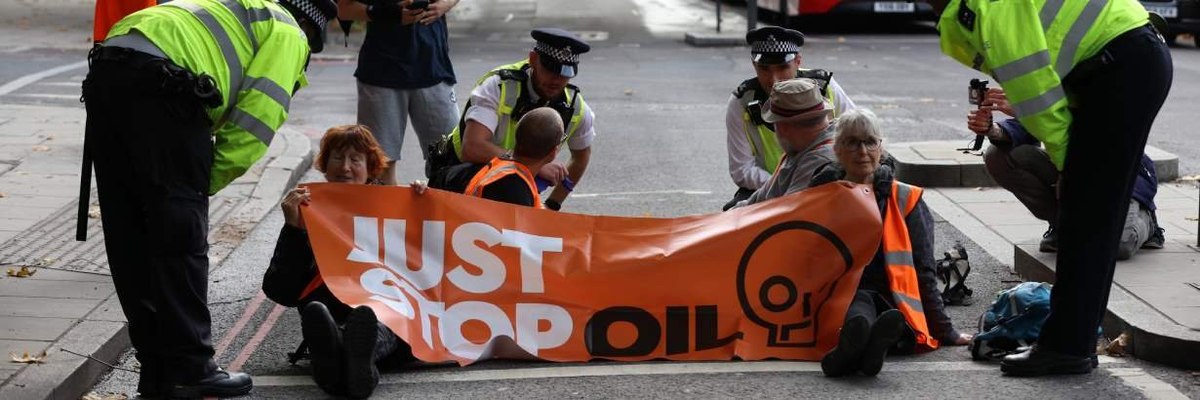Most Britons – including protestors themselves – say that disruptive protests do more to hinder than help a cause
The vast majority of Britons (76%) say they’ve never taken part in a public protest and nearly eight in ten of those people (78%) say they are not very likely, or not at all likely, to do so.
The recent imprisonment of Just Stop Oil activist Jan Goodey, however, shows the kind of risk some members of the public will take to support the causes they believe in. She is one of the 18% of Britons who say they have taken part in a protest.
Environmental issues, war and Brexit are the most common causes Britons say they’ve protested about
Nearly two-thirds (64%) of those who have protested say they’ve done so repeatedly, with 5% of demonstrators saying they’ve protested publicly 20 times or more.
Labour voters are more than three times as likely to say they’ve ever protested than Conservative supporters, by 32% to 9%. At 22% to 13%, those in ABC1 households (which are typically more middle class) are more likely than those in C2DE households (typically more working class) to say they’ve taken part in a public protest.
When asked what causes had inspired them to protest, Britons who have taken part in demonstrations are most likely to cite the environment and climate related issues (18%), war including conflicts in Iraq, Vietnam and Ukraine (13%) and Brexit (11%).
How much of a difference does protesting make? According to most Britons, very little
Nearly three-quarters of the public (73%) say they think protests rarely, if ever, make a difference, including 13% who believe they never do.
Older people are more pessimistic than the younger generation in this respect, with nearly nine in ten over-65s (87%) saying protests don’t often, or never, make a difference and just 9% saying they do so very or fairly often.
In contrast, youngsters aged between 18 and 24 are three times more likely to say they think protesting often does make a difference (28%), though around half still believe it infrequently, or never, does (51%).
Even among the 18% of Britons who have taken part in public protest, six in ten think it either didn’t make a difference very often (47%) or never did (14%).
A large majority of Britons – including six in ten protesters – say disruptive protesting hinders rather than helps a cause
Climate activists Just Stop Oil are the latest band of campaigners to grab headlines with a series of provocative protests. From throwing soup over Van Gogh’s Sunflowers to holding up traffic on the M25, the group’s contentious methods have generated a huge amount of publicity.
Many campaigners believe so-called direct action – such as defacing public property, blocking traffic or gluing people to roads or objects – is an effective way of drawing attention to their cause.
But the vast majority of Britons (78%) say this kind of protesting hinders, rather than helps a cause – including 61% who believe it hinders “a lot”.
And even among those who say they have taken part in protests, six in ten (60%) say such protesting hinders a cause, with a third (33%) saying it helps.
Nearly all Conservative voters (94%) say such protests hinder campaigners and their causes, while just 3% believe they help. Likewise, two-thirds of Labour supporters (66%) also think it hinders the protestors’ cause, but nearly a quarter (24%) say direct action like this helps.
While all age groups are more likely to say such protests hinder rather than help, 18 to 24-year-olds are far more likely than their elders to believe in their effectiveness, with 27% saying this kind of protest helps a cause, compared to 5% of over-65s.
Picture: Getty







